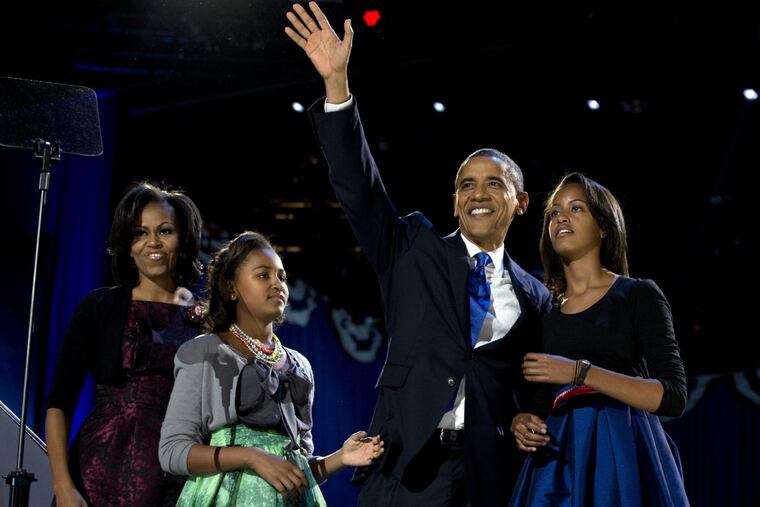Battling stereotypes of the black father
As black fathers, we wonder why so many people think that black fathers are missing. How does this myth retain its potency in the face of so much counter-evidence?

A brief online search for Black Fathers reveals articles in nearly every news outlet that all attest to the prevailing myth of the "absent" black father.
As black fathers, we wonder why so many people think that black fathers are missing. How does this myth retain its potency in the face of so much counter-evidence? Here's our answer to this question: The narrative is a simple and convenient stock story to make sense of the complex lives of black males. The absent father helps to explain black male school performance, incarceration, unemployment, and any other social ill black males are facing.
The preponderance of the evidence places black fathers, by no fault of their own, in the defensive position. With so many news outlets bringing this into focus and with their evidence coming from reputable agencies such as the Centers for Disease Control and Prevention, it defies the label of fake news. In fact, a 2013 Los Angeles Times article described a CDC report as "defying stereotypes about black fatherhood."
Black fathers must be above average to change the minds of observers. The character Rowan Pope, father of Olivia Pope on the TV show Scandal raised the ire of white America when he reminded his daughter, "You have to be twice as good as them to get half of what they have." This may have infuriated some audience members, but it is a common proverb in black culture. So why are black fathers so strongly associated with the "missing in action" label?
The answer lies in the unrealized power of stereotypes.
When we stereotype, we impose perceived traits onto people based on their group membership. This process operates below the conscious level. Cognitive laziness prompts us to put people in categories to avoid the processing of multiple and complex behaviors. Therefore, our society has a negative impression of black men that is automatically imposed on black fathers. When black boys exhibit negative behaviors, there is often an automatic assumption of an absent father. Nevertheless, even when a father shows up, the assumption is not erased. Stereotype research indicates that evidence contrary to a stereotype is subjected to much more scrutiny and often attributed to chance of situational factors.
If the stereotypes cannot be explained away, people often create subcategories of black fathers they claim are "different." Most people of color can attest that when they exhibit behavior outside of the expected stereotyped actions, they hear the phrase "but you're different." Black men with children are often labeled as different because they don't fit expected stereotypical behaviors of black fathers.
Unfortunately, positive depictions of black fatherhood are often ignored or dismissed as atypical by many. But according to much of the research, black fathers actually do more "dad stuff" than fathers from other ethnic groups. Yet we still suffer from the stigma of perceived absenteeism. It is amazing how so few are willing to believe the truth.
Moving forward, if we are to change the stereotype, the real narratives about black fathers must be available to key stakeholders in the policy discourse about black males en masse. This would include influential journalists that have the capacity to reach a wide audience. Then there are legislators and policymakers at the federal, state, and local government levels who would benefit from knowing the real stories of black fathers. For example, rather than assuming that black fathers are categorically absent, schools should seek ways to reach the fathers of some of the boys who are being underserved in schools.
Shifting the narrative would challenge policymakers to consider a confluence of factors such as school culture, teacher training, and school curriculum that impact the educational experience of black males. The key point is that all roads concerning black male social and educational conditions should not simply lead back to the black father.
As we celebrate Father's Day and reflect on the reality of black fatherhood, our society must turn to the real and relevant research that more positively frames black fathers. Constructing a more accurate reality about black dads will provide more motivation for us to be even better dads going forward. Better dads make for a better world.
Louis Harrison (lharrison@austin.utexas.edu) is a professor of curriculum and instruction and Anthony L. Brown (alb@austin.utexas.edu) is an associate professor of curriculum and instruction in the College of Education at The University of Texas at Austin. They are also affiliated faculty of the John L. Warfield Center for African and African American Studies and the Department of African and African Diaspora Studies at UT Austin, and last year launched the Black Male Education Research Collection website.